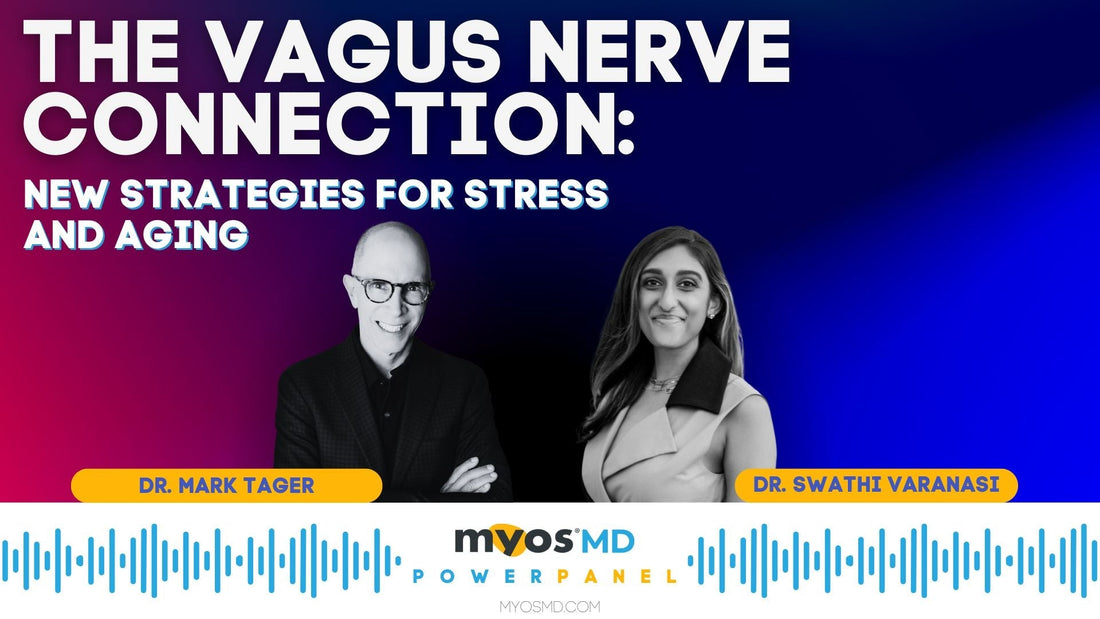The Vagus Nerve Connection: A New Approach to Stress, Aging & Muscle Health
In a recent power panel sponsored by MYOS MD, Dr. Mark Tager—an internationally recognized leader in integrative medicine and healthy aging—shared groundbreaking insights on the critical role of the vagus nerve in regulating stress, inflammation, metabolism, and even muscle health.
What Is the Vagus Nerve—and Why It Matters
Known as the “master regulator of peace,” the vagus nerve is the longest cranial nerve in the body, deeply intertwined with parasympathetic functions. “It hits just about every organ,” Dr. Tager explained, “and is really responsible for rest, restore, and relax.”
Inflammation, Immunity & Mitochondrial Health
Dr. Tager highlighted the vagus nerve’s role in the “inflammatory reflex”—a mechanism by which it senses cytokines and dampens inflammatory responses. “This unlocks the door both to inflammation but also metabolism,” he said, noting how vagus signaling affects mitochondrial function and metabolic health.
Muscle Preservation, Recovery & MYOS MD
Addressing sarcopenia and the loss of muscle with aging, Dr. Tager emphasized the emerging importance of muscle health. “The emphasis is moving to muscles. How do we maintain? How do we strengthen?” he asked. He pointed to MYOS MD and its core ingredient, Fortetropin, as part of a solution: “The focus has shifted… How do you keep your muscles stronger?”
Simple Strategies to Improve Vagal Tone
- Deep belly breathing: “Probably the best thing you can do with your patient.”
- Cold exposure: Even a face plunge can stimulate vagal response.
- Personalized nutrition: “You want a diverse microbiome... fermented foods, fiber, and less inflammation.”
- Sleep: “The universal healer.”
As Dr. Tager concluded: “If you get people into this relaxed, vagal state, you can light up new possibilities in their minds and hearts.”
Missed the panel? Watch the full recording below:

